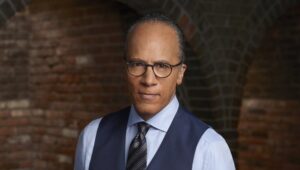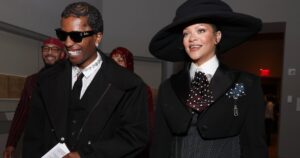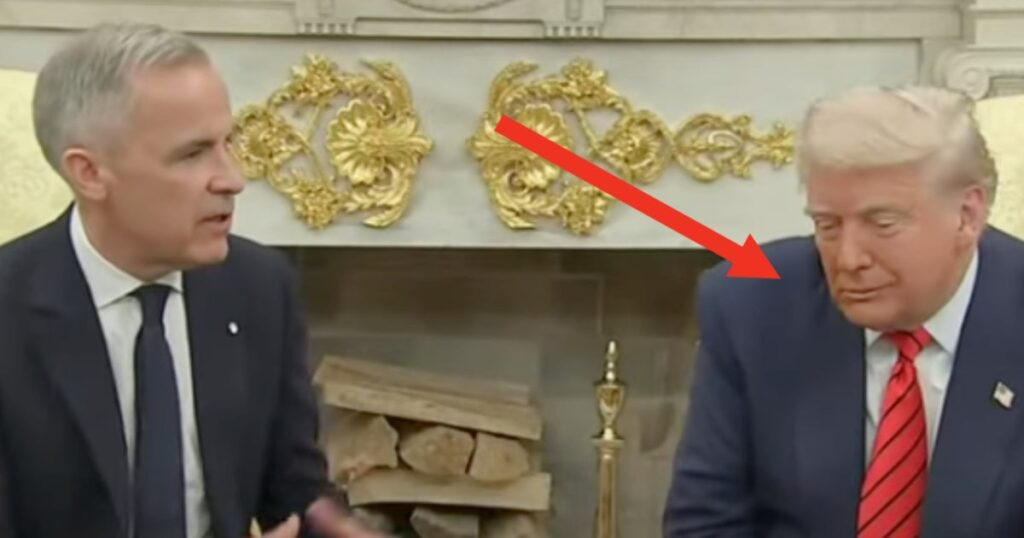President Donald Trump recently held his highly anticipated first meeting with Canada’s new prime minister, Mark Carney — and there was a lot to take away from the sit-down conversation.
During Carney’s visit to the Oval Office on Tuesday, the prime minister and Trump fielded questions from reporters and touched on several issues, such as Trump’s tariffs on Canada, while Trump at times veered off to level attacks at other public figures, including California Gov. Gavin Newsom (D), former President Barack Obama and former Canadian Prime Minister Justin Trudeau.
Among the issues discussed at the meeting was Trump’s ongoing calls to make Canada part of the U.S. Trump has been musing about making America’s northern neighbor the 51st state for months, and he’s insulted Trudeau on numerous occasions by publicly referring to him as “Governor Trudeau” to signal his desire to annex Canada.
Questions had loomed about how Carney’s first post-election meeting at the White House would go, given the strained relationship between U.S. and Canada after Trump ignited a trade war. Carney, who became the Liberal Party’s leader following Trudeau’s resignation, won Canada’s federal election last week.
When Trump reiterated his interest in seeing Canada becoming the 51st state during Tuesday’s meeting, Carney gave a clear response: “There are some places that are never for sale,” he said. “Having met with the owners of Canada over the course of the campaign the last several months, it’s not for sale. It won’t be for sale, ever.”
Trump later responded: “Never say never.”
Their conversation on Tuesday spurred a lot of chatter, but body language experts think their nonverbal cues during those moments also spoke volumes.
Carney signaled signs of tension when Trump floated the idea of annexing Canada, one expert said.
When a reporter asked Trump to address the fact that he’s been floating the idea of Canada becoming the 51st state, Trump responded that he “still believes that” it should happen but that it “takes two to tango.”
He then listed off several claims of what he said would be “advantages” and “tremendous benefits” to Canadians, such as lower taxes, and he said it would be a “wonderful marriage.”
But Carney’s body language during Trump’s remarks about the potential for the U.S. and Canada to have a “wonderful marriage” may have signaled “tension or disagreement,” said Karen Donaldson, a communication and body language expert.
“As Carney listens to Trump, you will see that he quickly purses his lips on a couple of occasions,” she said. “Pursed lips while someone is talking often signals tension or disagreement. It’s a subtle non-verbal cue that speaks volumes, suggesting the person doesn’t like what they’re hearing.”
“Carney also completely looks away from Trump as he continues to speak, which can signal disinterest in what is being said,” she continued, before adding that Carney’s facial expression displayed disapproval.
“There are various times where [Carney] gestures as if he wanted to interrupt what was being said, but pulled back,” she added. “When someone gestures [to] insinuate that they’d like to speak up/interrupt it’s often to share an opposing view.”
Denise M. Dudley, a psychologist and author of “Making Relationships Last,” told HuffPost that Carney had a “silent, almost statue-like” demeanor while Trump was speaking, and that at one point he sucked “his cheeks in,” which Dudley said was “very telling.”
Carney was “biding his time” before he could speak, Dudley said, pointing out that the Canadian prime minister “brings his index finger to the side of his nose while Trump keeps talking.”
″[It] was a (probably unconscious) gesture of either impatience or irritation or something similar,” she said.
Dudley said that she found it interesting that when Trump talks about the U.S. “protecting Canada” militarily, Carney “does not acknowledge this comment with any form of agreement whatsoever (not even a nod).”
“Carney’s hands move from folded to clasped, but are always contained on his lap,” she said. “I believe Carney is doing his best to remain professional, allow Trump to run out of run-on sentences, and then offer his very ministerial response. In general, throughout the interaction, I think Carney is doing his best to contain himself in what is probably a very irritating conversation.”
Trump’s head movement and “smirk” when Carney said Canada is “not for sale” was telling, Donaldson said.
“Trump exhibits a cluster of gestures; a quick eyebrow lift AKA eye brow flash, with a tilt of the head, accompanied with a smirk which signals that he is not in agreement with what the other person is saying,” Donaldson said about Trump’s reaction to Carney’s remarks about Canada not being “for sale.”
Dudley noted that Trump was nodding and had his hand “between his legs, looking down” when Carney made the comment.
“I think Trump is biding his time and working on his retort,” she said. “Carney is very clear, and he even adds the word ‘ever’ to his ‘not for sale’ news. Trump doesn’t like Carney’s response, but Trump is deciding that he will come back at this later on (which he does).”
Trump and Carney’s body language communicated quite a lot when Trump said “never say never” about Canada becoming the 51st state.
Trump pointed his finger toward Carney and upwards when he said “never say never” after the prime minister shut down the idea of Canada becoming the 51st state.
This gesture was used to emphasize his point and also signal “that he has a higher sense of authority,” Donaldson said.
And when Trump later doubled down, saying “never say never” again when a reporter pressed further about his desire to annex Canada, Carney appeared to show signals of “disapproval, tension and disagreement” by pursing his lip, Donaldson added.
Dudley said that while Carney was being “very statesmanlike” when Trump revived his “never say never” retort later in the discussion, she believes “you can tell he’s over it.”
She said that he showed signals by sucking his cheeks in, clenching his jaw and brushing off his knee, which she said could, perhaps unconsciously, show signs of “irritation or impatience.”
“As Trump is saying ‘time will tell’ and ‘it’s only time,’ Carney is finished and he wants out of there. He’s starting to look a lot more impatient with this particular topic,” Dudley added.
Read the full article here








